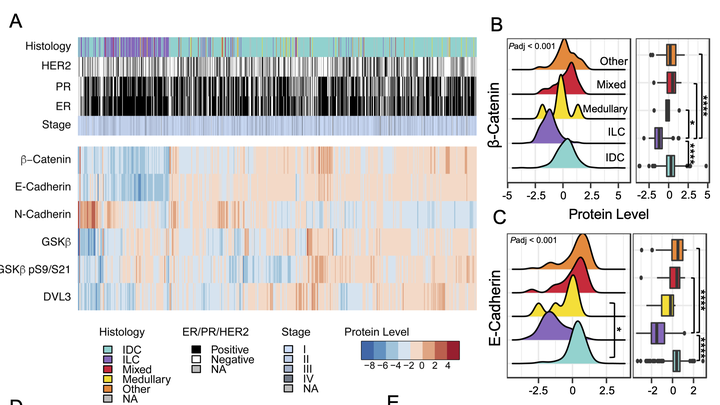Re-Evaluating E-Cadherin and β-Catenin: A Pan-Cancer Proteomic Approach with an Emphasis on Breast Cancer

Abstract
E-cadherin is conventionally considered to be a good prognostic marker in cancer. The loss of E-cadherin is one of the key hallmarks of epithelial-to-mesenchymal transition, a biological process that promotes cancer cell invasiveness and metastasis. Recent evidence has cast doubt on the importance of epithelial-to-mesenchymal transition in metastasis. The availability of protein-level data in the Cancer Genome Atlas allows for the quantitative analysis of protein and prognosis. The prognostic values of E-cadherin and β-catenin were revisited across 19 cancer types, and high E-cadherin was found to correlate with good prognosis in most cancers. Conversely, higher E-cadherin and β-catenin correlated with shorter survival in invasive breast carcinoma. Stratifying breast cancers by histologic subtype revealed that the poor prognosis of E-cadherin and β-catenin proteins was characteristic of infiltrating ductal, but not lobular, carcinomas. To further corroborate the protein findings and examine cellular localization, immunohistochemistry was used for E-cadherin and β-catenin in 163 breast patient samples from the Iowa cohort. Most previous studies showing that reduced or absent E-cadherin and β-catenin was inversely associated with tumor stages in ductal carcinomas were confirmed. Taken together, these results lead us to question the prognostic values of E-cadherin and β-catenin in ductal carcinomas and indicate a complicated role of E-cadherin and β-catenin in breast cancer progression.